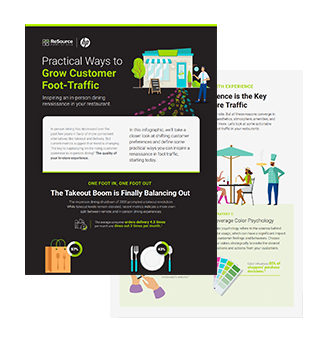Point of Sale Pricing Guide and Cost Comparison
Price is always a key factor, but when selecting a new POS system, it’s best to make sure that you’re looking at the features that will ensure your company’s success and not just the price tag. This point of sale cost comparison guide has all the POS pricing information you need to make a smart decision.
Point of sale systems are less expensive than they used to be, but they are still a significant investment. Like any investment, it’s best to research and compare your options before you make a purchase.
Point of Sale (POS) System Components and Cost Breakdown
Point of sale systems for restaurants, retail and hospitality come in two varieties: Cloud-based POS systems that store data on remote servers and Legacy POS Systems that store data on local servers.
Point of sale systems also rely on compatible hardware to function, the cost of which varies from provider to provider. Buyers must also account for the fixed and ongoing costs of any add-ons and/or third-party integrations they wish to include.
Ultimately, the price you pay for your point of sale system depends on the type of POS system you choose; the software-hardware bundle it needs to function; the add-ons and/or third-party integrations you wish to include, and the pricing models offered by the POS provider.
Point of Sale (POS) Pricing Models and Payment Plans
How much you pay for your point of sale system may also depend on the pricing model and/or payment plan offered by the POS provider. The following is a breakdown of the different POS pricing models you can expect to see.
Payment Subscription Fee Model
Most businesses with a POS system today pay a monthly subscription fee (approx. $50 – $250) for access to cloud-based software. In addition to the monthly subscription cost, many modern POS systems offer a single register setup (approx. $999 – $2,000) which typically includes a tablet, card reader, cash drawer, and a receipt printer.
Upfront Payment Model
If you would rather avoid a monthly subscription fee, you can opt for the upfront payment model. Expect to pay a flat fee (approx. $1,000) per year and per terminal.
Pay Per Transaction Model
Pay per transaction payment models are increasingly popular with small businesses looking to avoid monthly subscription fees. Those who opt for the pay per transaction model can expect for the POS provider to take a percentage of every transaction logged with their equipment.
Point of Sale (POS) System Cost
If you’re shopping for a new POS system, remember that there are many different brands to choose from. More expensive doesn’t always mean a better system, and less expensive doesn’t necessarily mean better value. To ascertain the true value of a POS system, you have to weigh the cost of the investment with the size of the return.
That said, most POS systems cost between $50-100 per month for one register. Including the initial cost of hardware, buyers can expect to pay between $1200 and $6500 for the first year, and $600 to $1200 for each subsequent year for a new POS system.
Additional Factors that Affect the Cost of a POS System
Additional factors related to your business affect what you are likely to pay for your POS system. For example, larger businesses typically pay $100-200 per month for the extra features they need to operate at scale. Other factors include:
Number of Registers
POS providers charge based on the number of registers and/or devices you purchase. Though, additional registers generally cost less than the first register. For example, a POS provider may charge $59 per month for the first register and $29 per month for each additional register.
Inventory Size
Some POS systems can only support smaller inventories and state a limit on the number of items you can keep. Systems that support a very large number of SKUs typically cost more.
Number of Employees
Most point of sale systems come with software plans that include a certain number of employees at each price level. If you need advanced employee management features, the POS system may charge for each additional employee.
Business Size
The larger the business is, the more you can expect to pay for a POS system, especially if you have a multi location business. In addition to needing more registers, larger businesses also have more complex needs that require additional features like employee scheduling.
Industry Type
Different industries have different POS needs. A salon may need a booking feature, while restaurants need a POS that connects with kitchen printers and handheld ordering devices. The more industry-specific features you need, the more you can expect to pay.
ReSource POS is a one- stop shop for all POS needs.
The POS provider you choose to work with will heavily influence the total cost of your point of sale system. Though some POS providers offer proprietary hardware, others offer open source, in which you may be able to save some money by sourcing your own hardware components.
Regardless of the POS system you wish to buy, Resource POS is the best POS provider for restaurants, retail and any other business looking to improve the point of sale capabilities. The plethora of POS solutions, plans, packages, and pricing we offer gives you plenty of options to choose the perfect POS for your business. Contact us today to get started.

